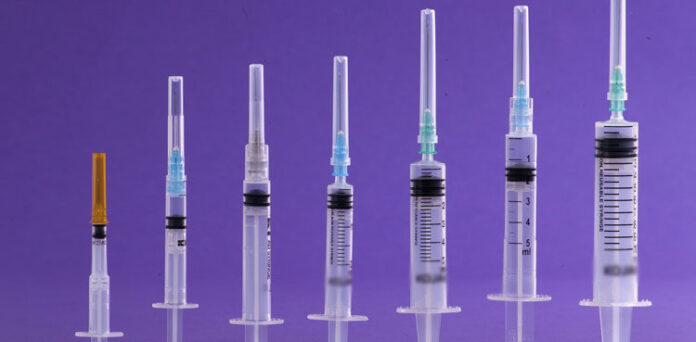ISLAMABAD: The Ministry of National Health Services, Regulation and Coordination has proposed waiving taxes on the import/manufacturing of auto-disable syringes.
According to sources, the health ministry has recommended the Federal Board of Revenue (FBR) to wave taxes, including additional customs duty and sales tax, on auto-disable syringes.
The ministry viewed that the waiver of taxes on auto-disable syringes would not only improve manufacturing technology (shift from conventional to auto-disable syringes) in the country but would also ensure availability of auto-disable syringes at affordable prices to the end-user.
The ministry has given importers time to shift to auto-disable syringes as it would impose a ban on import, as well as manufacturing, of conventional syringes from April 1, 2021.
Sources said that the Task Force on Injection Safety, which consist of manufacturers, importers and private healthcare providers, had recommended NHS&RC to impose a ban on the import of conventional syringes (2, 2.5, 3 & 5ml) with effect from January 1, 2021, and manufacturing of conventional syringes (2, 2.5.3 & 5ml) from 31st Aug 2021.
Sources said that the Economic Cooperation Committee of the Cabinet would take up the health ministry’s summary next week, as the meeting on Friday was cancelled due to the senate election.
Currently, the average price of the conventional disposable syringe of 5 ml is Rs4.72 (inclusive of all taxes) and 3ml is Rs4.59 (inclusive of all taxes), whereas the average price of 5ml auto-disable syringe is Rs7.35 (inclusive all taxes) and 3ml is Rs7.09 (inclusive of all taxes).
This means that an auto-disable syringe of 5ml is 55pc costlier than the conventional disposable syringe, whereas a 3ml syringe is 54pc costlier than the conventional syringe.
The local production of the syringe clocked in at 674 million, while imports stood at 436 million in the year 2020, constituting total consumption of 1,100 million. The task force has estimated that the number of auto disable syringes in the country would be 754 million by the end of this year.




